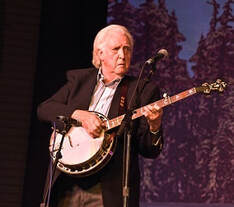Banjo, Rinky-Dink
 Banjo
BanjoThe word banjo is of African origin, likely related to Bantu mbanza, a musical instrument resembling a banjo. The word banjo, describing a guitar-like musical instrument with a circular body covered in front with stretched parchment, came to English in 1764. The instrument was also sometimes known as a banjar.
Rinky-dink
Rinky-dink, a term from 1913, is said to be carnival slang imitative of the sound of banjo music.
Earlier, the term rinky-dink in the chorus for a song is seen in an 1896 edition of the Yale Literary Magazine:
“Rinky dinky, rinky dink,
Stand him up for another drink.”
Also, more seriously, around this time the term rinky-dink meant to be robbed. For example, to quote from a story from 1899: “I felt and saw that I was robbed… I found an officer on the corner of 25th Street and 6th Avenue. I said, ‘Officer, I have got the rinky-dink.’ He knew what it meant all right. He said, ‘Where? Down at the wench house?’ I said, ‘I guess that is right’” (from a testimony dated New York, 9 August 1899).
Image: J.D. Crowe (born August 27, 1937, in Lexington, Kentucky) is an American banjo player and bluegrass band leader.
Reference: Online Etymological Dictionary, https://www.etymonline.com/
Published on December 06, 2020 22:39
No comments have been added yet.



